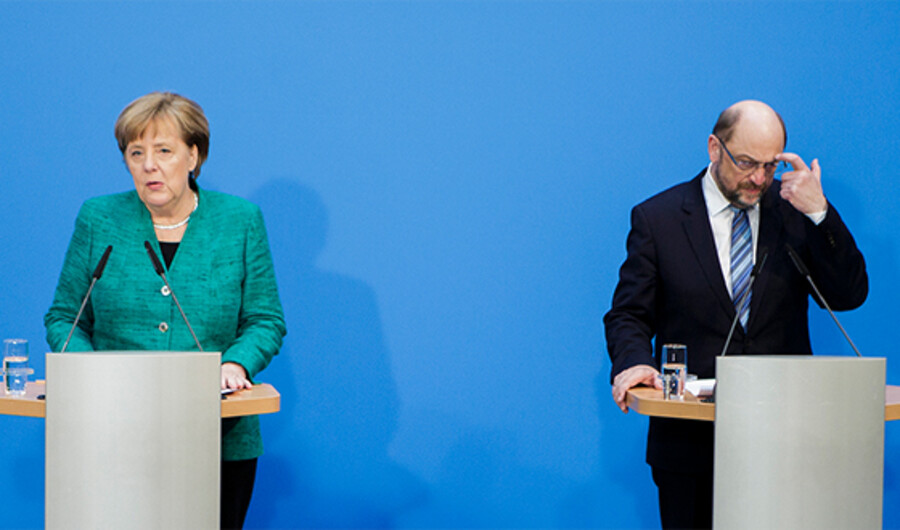
Getty Images
More Coalition Chaos and a New Military Command Center
German politics continues to look more chaotic and unstable than at any time in recent history. On February 7, Chancellor Angela Merkel announced a new coalition agreement, and it is becoming more unpopular by the day.
The left-wing Social Democratic Party is in turmoil. Its leader is so unpopular that he let it be known that he would be stepping down when the coalition agreement was announced. But he hoped to become foreign minister as a consolation prize. Two days later, he was forced to give that up.
A poll published on February 17 put the Social Democrats on a record low, with the support of only 16 percent. The party is only 1 percentage point ahead of the far-right Alternative für Deutschland (AfD), so its time as one of Germany’s two main parties could be over.
But Merkel’s Christian Democratic Union is in turmoil too. It doesn’t like the new coalition agreement and believes that Merkel gave away all the most important cabinet posts. Handlesblatt wrote that the party is “livid.” Spiegel Online said it is in a “potentially revolutionary fury.”
But this goes beyond two angry parties. On February 15, Spiegel Online wrote that we could be “close to a meltdown of Germany’s party system—with far-reaching consequences.”
So Germany’s political crisis continues to worsen. Keep watching this crisis and this growing anger. Prophecies in Daniel 8 and 11 describe the arrival of a strong, undemocratic leader in Germany. These political crises are causing exactly the kind of atmosphere necessary to make that happen. You can read about what is prophesied to happen in our booklet A Strong German Leader Is Imminent.
The coalition agreement calls for more German military spending and more European military cooperation. It explicitly states that this cooperation should pave the way toward an “army of Europe.” So if the coalition does take off, we could see more on this front.
There was one significant development on this front this week. nato defense ministers on February 14 and 15 approved the creation of two new command centers. The United States will host one focused on maritime security. Germany will host the other, focused on fast troop movement across Europe.
This is part of quite a few similar initiatives aimed at helping troops move much more quickly around Europe. German-Foreign-Policy.com reports that the way this headquarters is being set up, it will fall under German sovereignty and will not be firmly integrated into the nato command structure. It reported that this headquarters could be used outside of the nato framework, meaning Germany could soon be running a major command center for nato or European forces.
Germany’s growing military leadership is another major trend we’re watching. In our latest Trumpet magazine, Josué Michels and I wrote an article titled “Europe’s ‘Underground’ Army” that goes through all the ways Germany is quietly setting up a European Union army and how this is prophesied in the Bible. ▪
